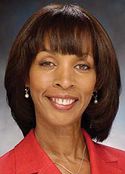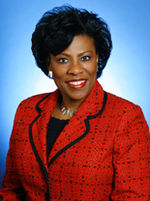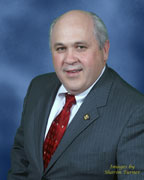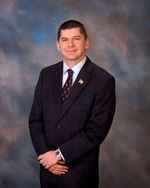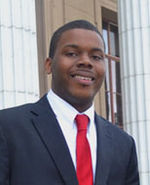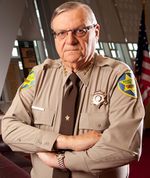Ballotpedia's review of the results for November's top municipal races
November 9, 2016
By the Municipal Government Team
On November 8, 2016, 33 of America's largest 100 cities by population held elections. Ballotpedia also covered elections in 12 large counties across the United States. Ballotpedia identified four races that headlined those elections. These races included the mayoral elections of Baltimore in Maryland, Baton Rouge in Louisiana, and Stockton in California. The fourth race was for sheriff of Maricopa County, Arizona. They were notable for their competitiveness, their ability to garner media attention, and their implications for future governance.
Races we watched
Baltimore, Maryland
Mayor Stephanie Rawlings-Blake (D) did not seek re-election. She cited a desire to make sure any actions she took to help the city move past the protests following Freddie Gray's death did not come off as campaign tactics. State Sen. Catherine Pugh (D), Alan Walden (R), and former Mayor Sheila Dixon (write-in Democrat) headlined the nine-candidate field for the general election. Pugh was considered by most to be the front-runner, since the city had not elected a Republican mayor or city council member since the 1960s. Pugh won with 57 percent of the vote.
Gray's death in April 2015 drew the city into a broader national conversation about race and law enforcement. On August 10, 2016, the United States Department of Justice released a 163-page report criticizing the city's police department for repeated violations of the constitutional rights of Baltimore residents with a focus on aggressive enforcement in black neighborhoods.[1] DeRay McKesson (D), a prominent activist within the Black Lives Matter movement, ran for mayor but was defeated in the Democratic primary. Other issues debated in the mayoral general election included a $660 million financing plan for a development project at Port Covington, a light rail line on North Avenue, and a decision on whether or not to sell the city-owned Baltimore Hilton Hotel.
| Baltimore Mayoral Election (2016), General Election, 2016 | ||||
|---|---|---|---|---|
| Party | Candidate | Vote % | Votes | |
| Democratic | 57.42% | 104,651 | ||
| Green | Joshua Harris | 10.21% | 18,612 | |
| Republican | Alan Walden | 9.48% | 17,275 | |
| Write-in votes | 22.9% | 41,732 | ||
| Total Votes | 182,270 | |||
| Source: Maryland State Board of Elections, "Unofficial 2016 Presidential General Election results for Baltimore City," accessed November 8, 2016 | ||||
Baton Rouge, Louisiana
Mayor Kip Holden (D) is term-limited and ran for a U.S. House seat. Former state Sen. Sharon Weston Broome (D) and state Sen. Mack "Bodi" White (R) were the front-runners according to polling in August and October. Baton Rouge had a Republican mayor in 2004 prior to Holden's election, and Republicans held a majority on the city council heading into the 2016 election. No candidate received a majority of the vote in this race. As the top two vote-getters, Weston Broome and White will meet in the general election on December 10, 2016.
Candidates had to answer questions about law enforcement, crime, and race following the fatal police shooting of Alton Sterling and the murder of three police officers by Gavin Long in July 2016. Sterling's death led to protests by local activists concerned about the police department's use of force, while Long's actions raised concerns among city officials of prolonged violence. To read more about how conversations about race and public safety shaped elections in Baton Rogue and across the nation, click here.
| Mayor of Baton Rouge, Primary Election, 2016 | ||||
|---|---|---|---|---|
| Party | Candidate | Vote % | Votes | |
| Democratic | 30.66% | 50,440 | ||
| Republican | 29.89% | 49,170 | ||
| Democratic | C. Denise Marcelle | 12.71% | 20,911 | |
| Republican | John Delgado | 8.77% | 14,430 | |
| Republican | R.J. Bourgeois | 6.46% | 10,635 | |
| Independent | Darryl Gissel | 6.19% | 10,182 | |
| Democratic | Greg LaFleur | 1.85% | 3,047 | |
| Democratic | Byron Sharper | 1.28% | 2,100 | |
| Libertarian | Rufus Craig | 1.10% | 1,807 | |
| Republican | Braylon Hyde | 0.44% | 731 | |
| Independent | Beverly Amador | 0.43% | 715 | |
| Independent | Cade Williams | 0.22% | 355 | |
| Total Votes | 164,523 | |||
| Source: Louisiana Secretary of State, "Unofficial Results," accessed November 8, 2016 | ||||
Stockton, California
Stockton has nonpartisan elections, but it was the only large Bay Area city with a mayor affiliated with the Republican Party prior to the election. Mayor Anthony Silva (R) faced challenger Michael Tubbs (D) in the general election after Tubbs received more votes in the primary election. Candidates sparred over the best direction for the city following its emergence from bankruptcy in 2015, focusing on development issues and crime. Tubbs defeated Silva by more than 40 percentage points.
Although only 16 of America's 100 largest cities by population have officially partisan elections, many candidates who run in nonpartisan races are endorsed by or otherwise affiliated with local political parties. Ballotpedia identified a handful of cities where partisan control of city hall could change between the two major parties in 2016. To read more about these situations, click here.
| Mayor of Stockton, Nonpartisan General Election, 2016 | ||
|---|---|---|
| Candidate | Vote % | Votes |
| 71.38% | 20,113 | |
| Anthony Silva Incumbent | 28.62% | 8,064 |
| Total Votes | 28,177 | |
| Source: San Joaquin County Registrar of Voters, "Election Results," accessed November 9, 2016 | ||
Maricopa County, Arizona
Sheriff Joe Arpaio (R) faced what the Los Angeles Times called "his toughest general election in decades" against his challenger, retired police officer Paul Penzone (D).[2] Multiple polls in October indicated that Penzone held a double-digit lead over Arpaio, despite the incumbent raising $12 million to his challenger's $540,000. Penzone earned 55 percent of the vote to defeat Arpaio.
Arpaio has received national attention for his opposition to illegal immigration. The Maricopa County sheriff's office has faced multiple class-action lawsuits alleging it has practiced racial profiling.[3] In October 2016, federal prosecutors announced that they intended to file criminal contempt of court charges against Arpaio, a charge that carries a maximum prison sentence of six months.[4] Arpaio dismissed the charges as a political move, saying, "It is clear that the corrupt Obama Justice Department is trying to influence my re-election as sheriff of Maricopa County."[5]
| Maricopa County Sheriff, General Election, 2016 | ||||
|---|---|---|---|---|
| Party | Candidate | Vote % | Votes | |
| Democratic | 55.05% | 563,059 | ||
| Republican | Joe Arpaio Incumbent | 44.95% | 459,683 | |
| Total Votes (71% of precincts reporting) | 1,022,742 | |||
| Source: Maricopa County Recorder, "2016 General Election Unofficial Results," November 8, 2016 | ||||
See also
Footnotes
- ↑ The New York Times, "Justice Department to Release Blistering Report of Racial Bias by Baltimore Police," August 9, 2016
- ↑ Los Angeles Times, "Arizona Sheriff Joe Arpaio easily wins primary — but now faces his toughest general election in decades," August 30, 2016
- ↑ Washington Post, "Joe Arpaio, ‘America’s toughest sheriff,’ wins primary race despite facing criminal prosecution," August 31, 2016
- ↑ Politico, "Feds to launch contempt case against Sheriff Arpaio," October 11, 2016
- ↑ AZcentral.com, "Roberts: Joe Arpaio just lost the election," October 11, 2016



